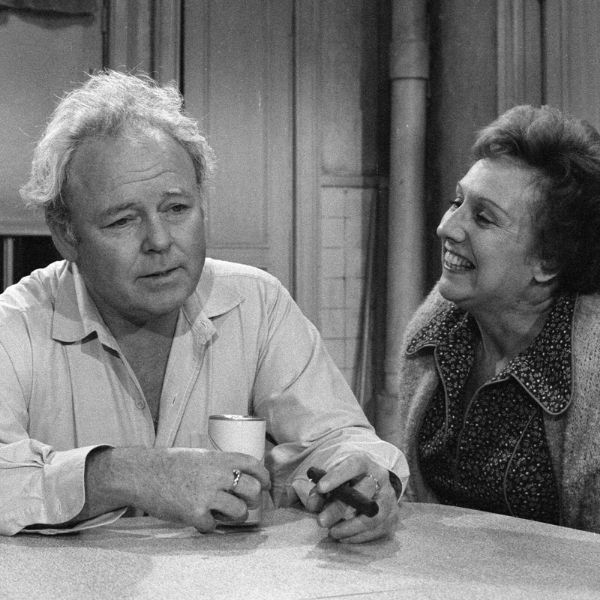Norman Lear, a pioneering giant in the television industry, passed away on December 5, 2023, at the age of 101, leaving behind a rich legacy that reshaped American TV. With a career spanning several decades, Lear was not just a television producer; he was a visionary who used humor to address and challenge social issues. Norman Lear net worth, estimated atx an impressive $200 million, is a testament to his extraordinary success and influence.
Born in 1922, Lear’s journey in television began in the 1950s, marking the start of what would become a transformative era in TV history. He was the mastermind behind several groundbreaking sitcoms, including “All in the Family,” “The Jeffersons,” and “Sanford and Son,” which not only entertained but also provoked thought and discussion about societal issues.
Lear’s approach to television was unique; he combined entertainment with potent social commentary, making him a revered and sometimes controversial figure. His shows often dealt with topics that were considered taboo at the time, such as racism, sexism, and other social injustices, making a significant impact on American culture.
Beyond his television career, Lear was also known for his activism and philanthropy. He was a staunch advocate for civil rights and political causes, using his platform and resources to support various social and political initiatives. His contributions to the industry and society were recognized with numerous awards, including six Emmy Awards.
Lear’s passing marks the end of an era, but his legacy continues through the timeless relevance of his work. His vision and creativity not only entertained millions but also sparked important conversations, making him an icon in the world of entertainment. Norman Lear will be remembered not just for his impressive net worth, but for his indelible mark on television and American culture.
What is Norman Lear Net Worth?
Norman Lear’s net worth, as of 2023, was estimated to be around $200 million, a figure that underscores his successful career in the television industry. This wealth was accumulated through his extensive work as a writer, producer, and creator of some of the most influential sitcoms in American television history.

Lear’s financial journey is as remarkable as his creative one. His career took off in the 1950s, but it was the 1970s that marked a significant turn in his fortunes. Shows like “All in the Family,” “The Jeffersons,” and “Sanford and Son” not only broke new ground in terms of content but also proved to be financial gold mines. These shows dealt with real-life issues, from race to politics, making them both critically acclaimed and commercially successful.
The revenue from these shows was bolstered by Lear’s smart business decisions and investments. He was not just a creator but also a savvy businessman, understanding the value of his creations and leveraging them for financial gains. Lear’s production company was involved in various successful projects, contributing significantly to his net worth.
Moreover, Lear’s assets were not limited to his earnings from television. His investments in various ventures, real estate holdings, and other business endeavors also contributed to his wealth. Despite the financial ups and downs common in the entertainment industry, Lear managed to maintain and grow his wealth over the years.
The impact of Lear’s work extended beyond mere entertainment; it influenced American culture and society, making his shows valuable not just in terms of viewership but also in their cultural significance. This, in turn, translated into financial success, as evidenced by the royalties and continuous earnings from reruns and syndication deals.
Personal Life & Biography of Norman Lear
Norman Lear’s life, both personal and professional, paints the picture of a man deeply involved in the tapestry of American culture. Born on July 27, 1922, in New Haven, Connecticut, Lear’s early years set the stage for a lifetime of storytelling and social commentary.
Lear’s family background and upbringing played a crucial role in shaping his worldview. His experiences growing up during the Great Depression influenced his approach to the themes of poverty and inequality that he would later explore in his work. Despite these early challenges, Lear’s drive and ambition were evident from a young age.
Moving into his personal life, Lear was married three times. His third and final marriage was to Lyn Davis Lear, and they remained together until his passing. Lear was a loving father to his six children, Ellen, Kate, Maggie, Benjamin, Brianna, and Madeline, with whom he shared close relationships. His family life, although kept relatively private, was a source of stability and inspiration throughout his career.
Tragically, Lear passed away on December 5, 2023, at his home in Los Angeles, California, of natural causes. His death marked the end of an era in television history but also underscored the timeless nature of his contributions to the medium.

In addition to his work in television, Lear was known for his political and social activism. He founded the liberal advocacy group People for the American Way and was an outspoken advocate for civil liberties and political causes. His activism reflected his belief in using his platform to effect positive change in society.
Throughout his life, Lear received numerous awards and honors that recognized his contributions to the entertainment industry and his efforts in social and political activism. These accolades are a testament to the impact he had not only as a creator but also as a citizen deeply engaged with the issues of his time.
Norman Lear’s Investments and Financial Endeavors
Norman Lear’s financial acumen extended beyond the revenues from his television shows. His investments and business ventures played a significant role in building and maintaining his considerable net worth, which stood at an estimated $200 million at the time of his passing.
Lear’s investment portfolio was diverse. Apart from the entertainment industry, he ventured into various other sectors, demonstrating a keen sense of market trends and opportunities. His investments often mirrored his personal interests and beliefs, especially in the realm of social and political activism.
One notable aspect of Lear’s financial journey was his ability to leverage his success in television. He understood the value of his shows and their potential for syndication, which provided a steady stream of income long after the shows had ended their original runs. The royalties from these syndications were a significant part of his earnings.
Additionally, Lear was involved in real estate investments. He understood the value of property and its potential for appreciation over time. These investments likely contributed to his net worth, providing a stable and growing asset base.
Lear’s approach to investment was marked by a balance of risk and conservatism. He was willing to invest in new ventures, but he also maintained a portfolio of more stable, traditional investments. This strategy helped him navigate the ups and downs of the market and the entertainment industry, ensuring that his wealth continued to grow over the years.
It’s important to note that Lear’s financial success was not just a result of his investments but also a reflection of his broader business strategy. He was a visionary not only in the creative aspects of television but also in understanding and capitalizing on the business side of the industry.
Early Life of Norman Lear
Norman Lear’s early life was a foundational period that shaped his future success and creative vision. Born on July 27, 1922, in New Haven, Connecticut, Lear grew up during a time of significant social and economic upheaval, which deeply influenced his perspectives and his work.
Lear’s childhood was marked by the challenges of the Great Depression, an era that left an indelible mark on American society. These early experiences of economic hardship and social change played a significant role in shaping Lear’s understanding of the world and would later be reflected in the themes of his television shows.
Despite the difficulties of his early years, Lear’s family life was a source of strength and inspiration. His parents’ influence, particularly their resilience and humor in the face of adversity, would become a recurring motif in his later work. The family dynamics and interactions he observed during his childhood provided a rich tapestry of material that he would draw upon in his career.
Lear’s education and early experiences with entertainment also played a crucial role in his development. His interest in storytelling and performance was evident from a young age, setting the stage for his future career in television. These formative years were crucial in developing the unique voice and perspective that Lear would bring to his work.
Career & Professional Journey of Norman Lear
Norman Lear’s career and professional journey is a remarkable story of innovation, resilience, and impact on American television. His journey in the entertainment industry began in the 1950s and spanned several decades, during which he revolutionized TV sitcoms with his unique blend of humor and social commentary.
In the 1950s, Lear began his career in television by writing and producing a variety of comedic sketches and shows. This period was crucial in honing his skills as a writer and understanding the dynamics of television production. His early work laid the foundation for his later success.
The 1970s marked the pinnacle of Lear’s career, with the creation of “All in the Family” in 1971. This show broke new ground in television by addressing issues like racism, sexism, and other societal problems, wrapped in a comedic format. It was a major hit and is often considered one of the greatest TV shows of all time.
Following the success of “All in the Family,” Lear created several other successful sitcoms, including “The Jeffersons,” “Sanford and Son,” “Good Times,” and “Maude.” Each of these shows had a unique voice and perspective, but all shared Lear’s trademark combination of humor and social awareness.
Lear’s career was not without its challenges. He faced criticism and controversy for the topics he chose to explore in his shows. However, he remained committed to his vision of using television as a platform for discussing important issues.
Beyond his work in television, Lear was also a political and social activist. He founded the advocacy group People for the American Way and was involved in various other initiatives, reflecting his belief in the power of media to influence society and culture.
FAQ about Norman Lear
In this section, we’ll address some frequently asked questions about Norman Lear, offering insights into his life, career, and legacy.
How did Norman Lear begin his career in television?
Norman Lear started his career in the 1950s, writing and producing comedy sketches and shows. This period was crucial for developing his unique voice and perspective, which later defined his success in television.
What are some of Norman Lear’s most famous TV shows?
Lear is best known for creating groundbreaking sitcoms like “All in the Family,” “The Jeffersons,” “Sanford and Son,” “Good Times,” and “Maude.” These shows are celebrated for their blend of humor and social commentary.
What was Norman Lear’s approach to addressing social issues in his shows?
Lear’s shows often tackled societal issues such as racism, sexism, and other forms of inequality. He used humor as a tool to discuss these topics, making them accessible and thought-provoking to a wide audience.
What awards and recognitions did Norman Lear receive?
Lear received numerous awards, including six Emmy Awards, recognizing his contributions to television. He was also honored for his activism and efforts in social and political causes.
Was Norman Lear involved in activism?
Yes, Lear was a prominent political and social activist. He founded the advocacy group People for the American Way and was actively involved in various initiatives promoting civil liberties and political causes.
What is Norman Lear’s legacy in the entertainment industry?
Lear’s legacy lies in his revolutionary approach to television, creating content that combined entertainment with critical social commentary. His work influenced not only the entertainment industry but also American culture and society.
How did Norman Lear’s early life influence his work?
Lear’s upbringing during the Great Depression and his observations of family dynamics and societal issues in his early years deeply influenced the themes and narratives of his television shows.
What was Norman Lear’s net worth at the time of his passing?
As of 2023, Norman Lear’s net worth was estimated to be around $200 million, reflecting his success in television production, investments, and various business ventures.
Anne R. Jacinto is an engaging writer with a zest for blending literary insight with digital trends. Keen on research, she delves into global events and the stories behind influential figures, offering readers a glimpse into the lives of celebrities worldwide.







